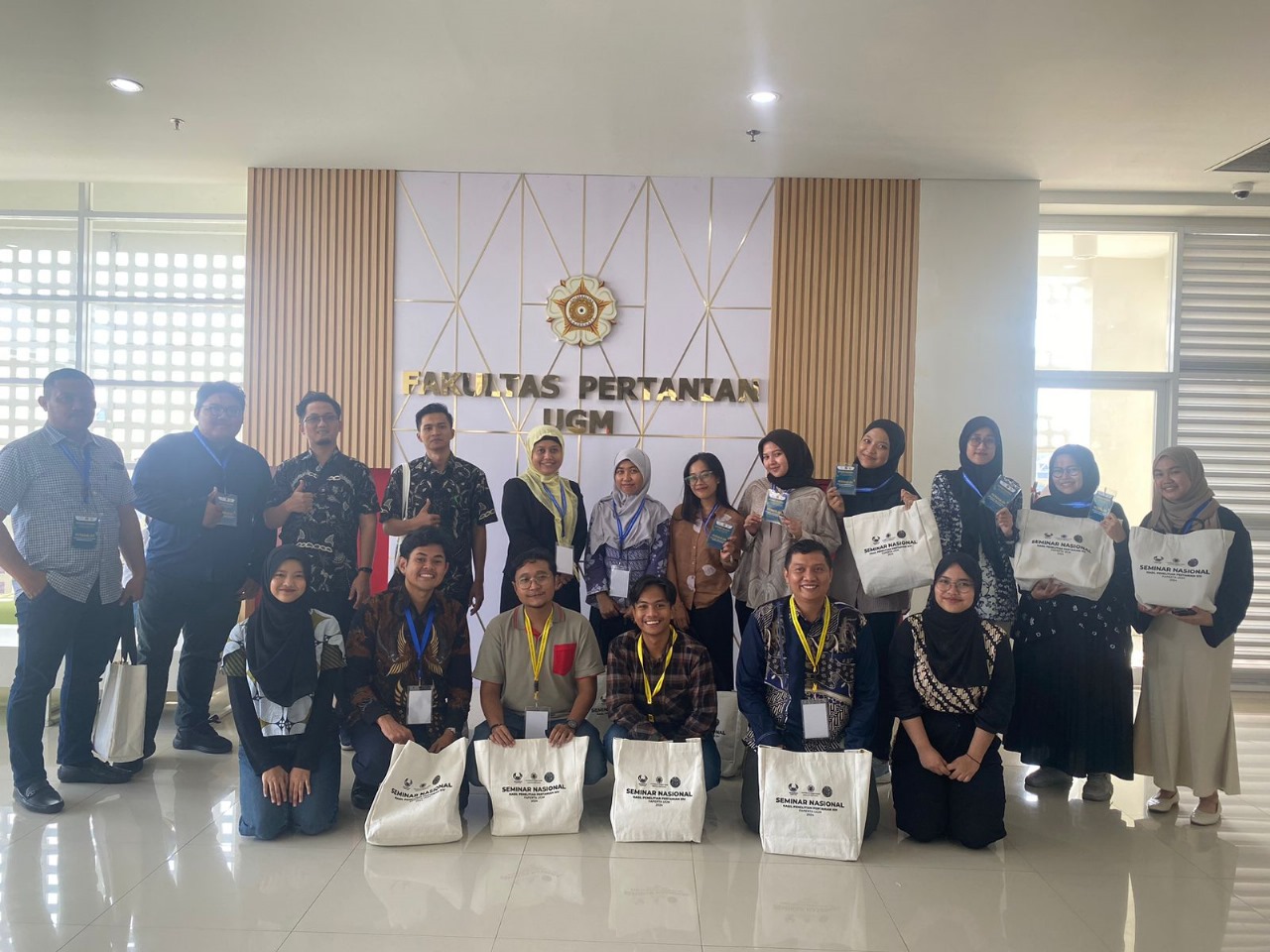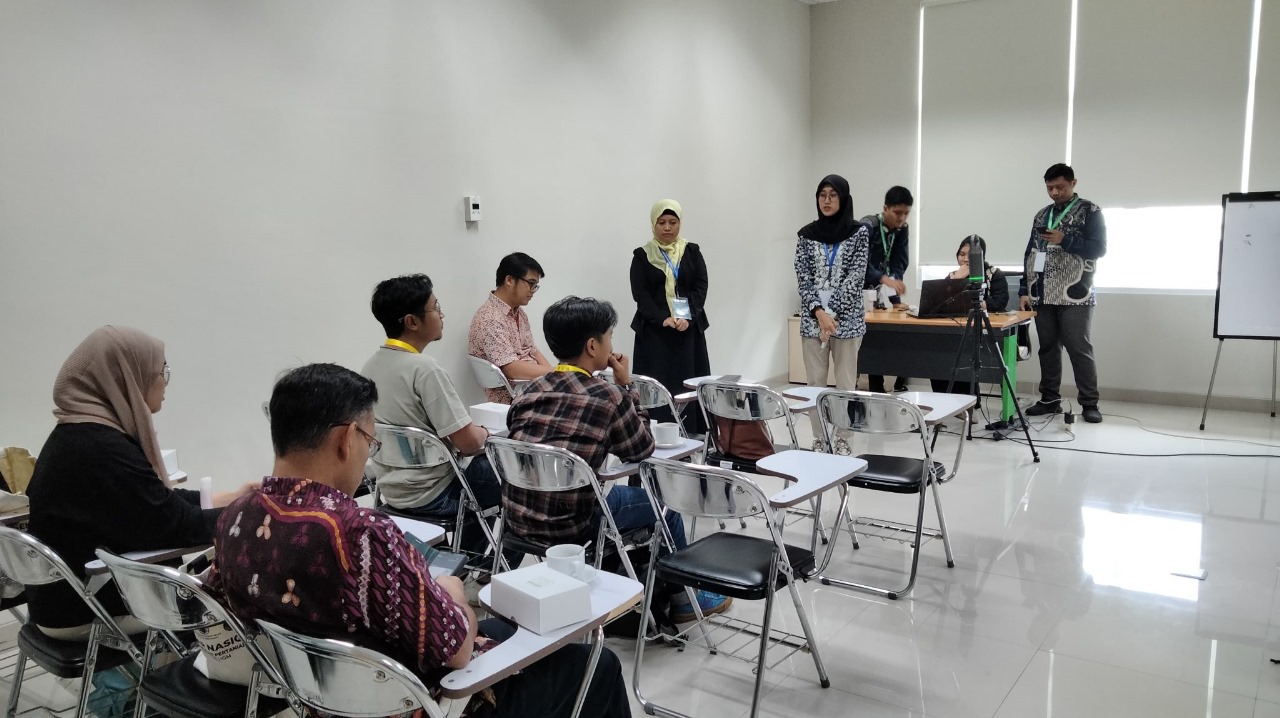
The Faculty of Agriculture Universitas Gadjah Mada (Faperta UGM) held the 14th National Seminar on Agricultural Research as part of the 78th Anniversary of the Faculty of Agriculture UGM on Saturday, 21 September 2024. During the event, participants were divided into eight classes focusing on specific agricultural fields. One of them was the Microbiology Class, held at the Agrotropical Learning Center (AGLC) of the Faculty of Agriculture UGM. This class highlighted the potential of microbes in supporting sustainable agriculture.
Fourteen participants joined the Microbiology Topic, which was divided into two sessions to present their research findings. Following the presentations, discussion sessions allowed participants to share their opinions. The research topics in this class varied widely, including two noteworthy studies by faculty members of the UGM Department of Agricultural Microbiology. These studies explored plant-growth-promoting bacteria for duckweed and microbes inducing rice resistance to biotic and abiotic stresses.

Desi Utami, S.P., M.Env.Sc., Ph.D., presented her study titled “Exploration of Plant Growth-Promoting Bacteria for Duckweed Growth”. She highlighted the significant potential of Plant Growth-Promoting Bacteria (PGPB) to enhance duckweed growth. Duckweed, an aquatic plant, can act as a phytoremediation agent for wastewater, offering advantages such as rapid growth and high protein content. Her research revealed that the bacterium Bacillus pumilus MRB4 demonstrated the best results.
“This study shows that inoculation with Bacillus pumilus MRB4 significantly increased the quantity and dry weight of duckweed (Lemna minor). The high PGPB activity of this bacterium, particularly in its high molecular weight protein fractions, indicates the presence of specific compounds that stimulate plant growth. Protein P26, isolated from MRB4, is strongly suspected to be the growth-promoting compound,” explained Desi.
Meanwhile, Susanti Mugi Lestari, S.P., M.Si., Ph.D., presented her research on Microbes Inducing Resistance in Gamagora Rice against Biotic and Abiotic Stresses. She explained that UGM’s Faculty of Agriculture successfully developed an inbred superior rice variety called Gamagora, suitable for cultivation in both wetland and dryland environments. Gamagora rice demonstrates resilience against various stresses, including pest attacks (biotic) and extreme environmental conditions (abiotic).
“The key to Gamagora rice’s resistance lies in the utilization of specific microbes, including Enterobacter flavescens and ACCD-producing endophytic bacteria isolate PCM8. These bacteria enhance plant resistance to stresses, thereby reducing dependency on chemical fertilizers and pesticides,” stated Susanti.
The 14th National Seminar on Agricultural Research exemplifies UGM’s commitment to supporting several SDGs: SDG 1:No Poverty, SDG 2:Zero Hunger, SDG 3:Good Health and Well-being, SDG 4:Quality Education, SDG 12:Responsible Consumption and Production, SDG 13:Climate Action, SDG 15:Life on Land, and SDG 17:Partnerships for the Goals.
Writer: Karina Nisa Intan Kusuma, Ghorizatu Shofra
Editor: Hanita Athasari Zain
Photo: UGM Faculty of Agriculture Media
